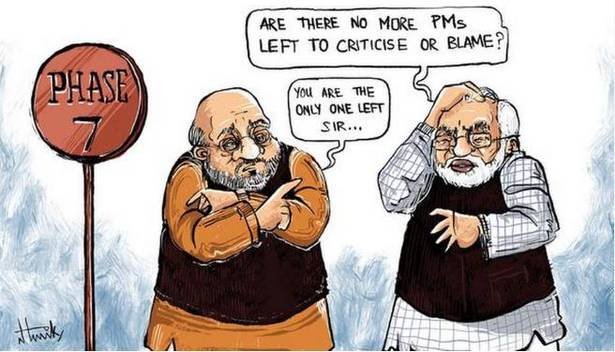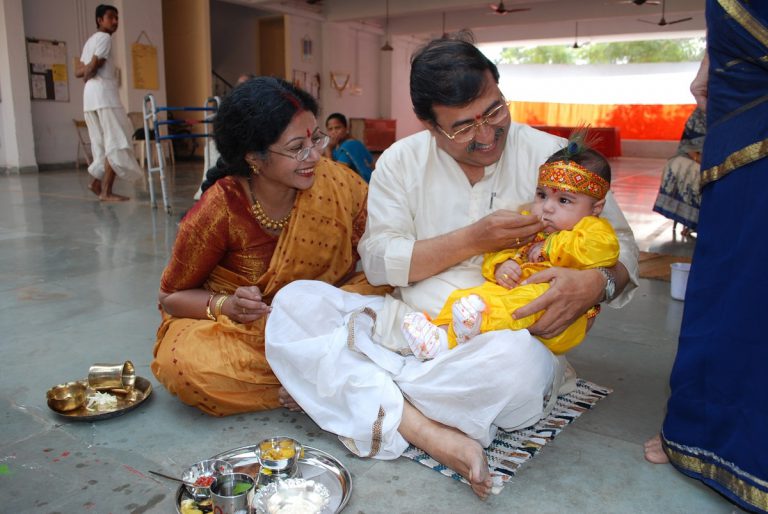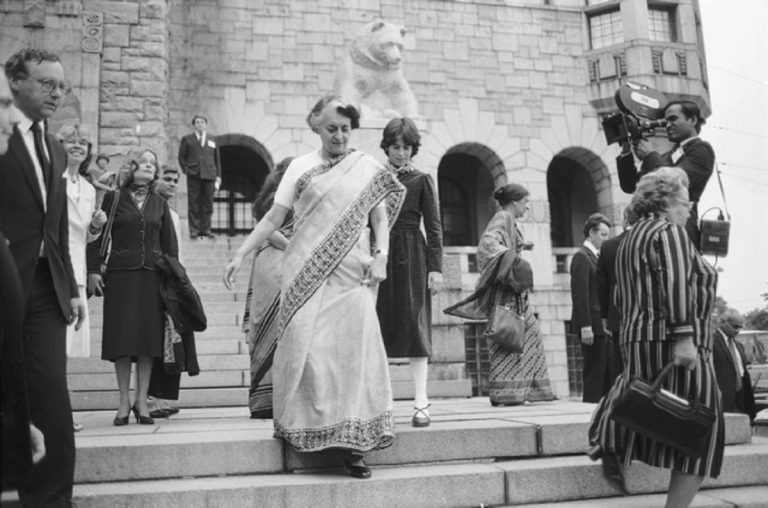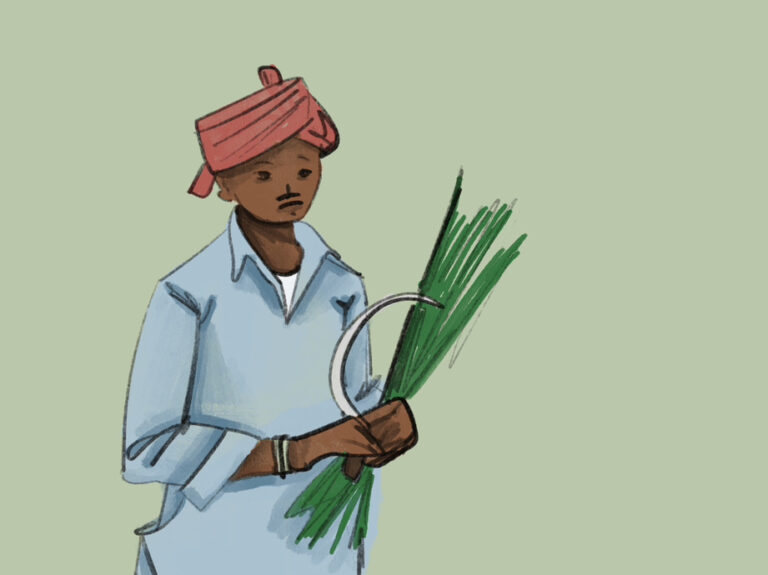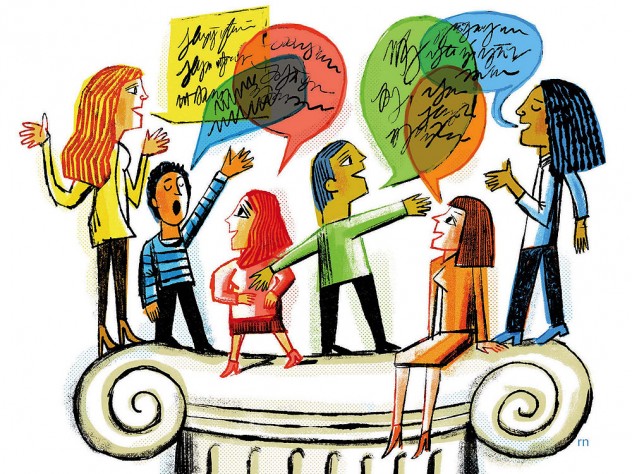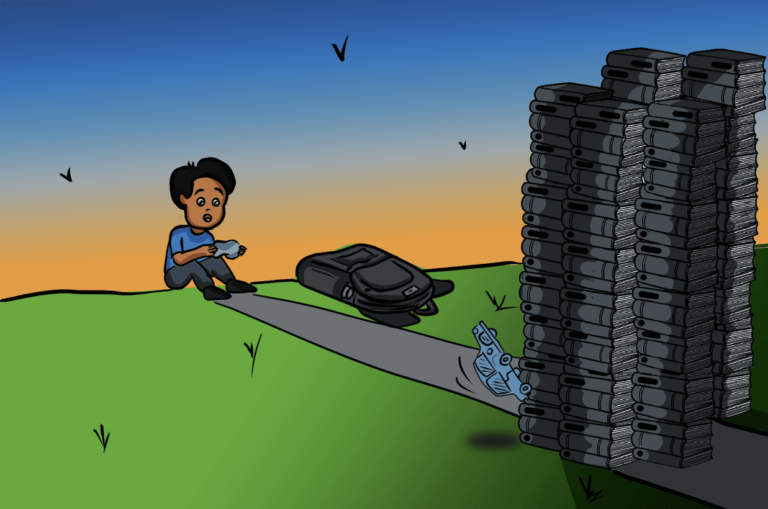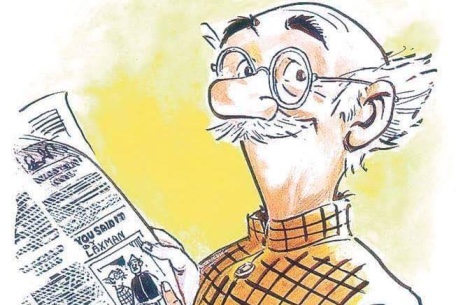The Antagonism Between Truth and Politics
अगर ये सच है
तो लोग क्या सिर्फ़ एक ही सच को मानते हैं
कि मैं खड़ा हूँ जहाँ वहाँ से
तुम्हारे चेहरे का एक ही रुख़
अयाँ है
जैसे
तुम आधे चेहरे के आदमी हो
अगर ये सच है
तो फिर बताओ कि झूट क्या है
Translation:
If this is truth
Then do people believe in one truth
If truth is not a point of view, then what is it
From where I stand
I see only one side of your face
As if
You are a half-faced man
If this is truth
Then what is a lie
-Raashid Aazar (translated by the author of the article)
Every event that occurs consists of stubborn facts that include information such as the time and date of the event, number of persons involved, what they did, whom their deeds affect, and so on and so forth. This occurrence can be looked at through different lenses and its different aspects may be highlighted, but in order to do that, certain normative foundations or skeletal structures i.e., pure facts, need to be acknowledged. These facts are what we can term ‘factual truths’ as understood by Hannah Arendt. For any perseverance to exist, we need, as Herodotus put it, “to say what is.”[1] However, power seeped into ideology has a habit of manufacturing its “image”. This image is built and fed to the mass by using tools such as the press, television, films, media, and books. These constructed alternate realities are then used as fertile ground to indulge in blatant falsification.
Whenever a political party claims that its ‘image’ is being tarnished or attacked, they by definition are implying that they are talking about a construct because an ‘image’ is not real. For example, in Uttar Pradesh, the state struggled to breathe amidst the second wave of the pandemic, and crematoriums overflowed. Yogi Adityanath, the CM of the state, was quoted saying, “there is no shortage of oxygen at any COVID hospital – be it private or government. The problem is black-marketeering and hoarding, which will be tackled with a heavy hand.” He also directed officials to take action under the National Security Act of 1980 and the Uttar Pradesh Gangsters and Anti-Social Activities (Prevention) Act, 1986 and to seize the property of those who were trying to “spoil the atmosphere”.[2] That the oxygen shortage was real is so blatantly obvious that it boggles the mind when it is denied.
A feature of contemporary political lies is that their quality diminishes as its audience increases; so lies produced for mass consumption rate the lowest in terms of quality.[3] This is one of the features that propaganda on the government level has in common with business practices and Madison Avenue methods.[4] They create a web of deceptions and create an “image” of themselves that they make sure is not tarnished by any means.
When an Australian newspaper blamed PM Modi for the mishandling of the Covid crisis resulting from “hubris” and “nationalistic politics”. The Indian High Commission at Canberra called the article, ‘baseless, malicious and even asked the newspaper to publish a rejoinder’.[5] It is now common knowledge that the reported deaths and infections due to Covid are undercounted. It is as if when death is not acknowledged it will cease to exist. We can see that factual truth in both cases mentioned above is treated with hostility.[6] The virus is talked of in less hostile terms while the truth-tellers are treated as enemies of the state; basic facts are treated as a state secret.[7]
Another interesting feature of modern political lies is that they deal with things that are not secrets at all but known by practically everyone.[8] The Bhartiya Janta Party has begun to function like a “secret society”[9], trying to keep things opaque. They reveal as little as possible and churn propaganda through the press and by printing PM Modi’s face on each vaccine certificate. Even though PM CARES funds were created, we still have no complete transparency over where they were used.[10] Those who have access to information such as this are its members that hold a privileged position and serve in propagating the ideology of the party. The party values loyalty more than expertise, and obedience has become the essence of the group leader and his party members.[11]
In 2017, Amartya Sen, professor of Economics and Philosophy at Harvard University, called demonetization a “despotic action that has struck at the root of the (Indian) economy based on trust.” PM Modi’s rebuttal to the statement was that “hard work is more powerful than Harvard.” Since then, much has been written about demonetization’s failure. More recently, on May 25, 2020, three medical professional associations: the Indian Public Health Association, the Indian Association of Preventive and Social Medicine, and the Indian Association of Epidemiologists, submitted a joint statement criticizing the government’s handling of the pandemic and made recommendations for the future. They pointed out that the “government was primarily advised by clinicians and academic epidemiologists with limited field training and skills. Policymakers apparently relied overwhelmingly on general administrative bureaucrats. The engagement with expert technocrats in the areas of epidemiology, public health, preventive medicine, and social scientists were limited.”
That politics/power and truth are antagonistic is a truism. However, there can be several degrees of such antagonism.[13] What we are witnessing in India today is the highest degree of this rivalry where truth is repeatedly being suppressed. Facts and truth are vulnerable to the onslaught of power, constantly being twisted to suit the needs of those in power.[14] What adds winds beneath the wings of those in power is an opinion and not truth, because opinion is malleable. Factual truths are treated as opinions that can be refuted instead of being accepted as concrete realities. They are not only countered by deliberate falsehoods but by opposing opinions.[15] Herodotus’s ‘it is’ in this case becomes ‘it seems to me’.
Just as the government tries to remain opaque, there is opacity in truth. It can only be countered with lies.[18] There is no possibility of debate when it comes to truth. The certitude that India did not prepare for the second wave and declared an all too soon victory over the Coronavirus is a fact that precludes debate. The large number of people who died due to oxygen shortage is also a fact that is being denied. For any amount of cooperation or even a dialogue amongst individuals, it is necessary to agree on facts or some indispensable truth in order to move the conversation forward. For instance, if two individuals disagree on the very existence of a crisis then the talk of solutions becomes redundant.
Facts and opinions, unlike truth and power, are not antagonistic and can exist simultaneously, however, opinions can’t be used to deny the factual matter. Facts form the basis on which an opinion or point of view can be constructed. Facts exist independent of opinion. Factual truth is rigid and even coercive as it cannot be countered with opinion.[16] It is this coercive nature of truth that makes it a weapon against power and provides a check on it. This truth, unlike other sources that provide checks on power, like the constitution, occurs outside the political realm. This truth cannot be monopolized by tyrants and therefore is vehemently hated by them.[17] If you add or subtract from the truth, it ceases to exist but lies have no such boundaries.
When the line between factual truth and opinion is blurred, it becomes clear that it is just another facet of lying. There is an attempt to create an alternate reality which is then fed to the mass through the press constantly. There is a tendency in totalitarian anthropology that assumes that the mass cannot think and can only obey and believe.[19] A whiff of this belief can be identified in the BJP if we look at the outrageous lies that it often peddles in the attempt of making the mass believe.
However, no matter how much the BJP attempts to sustain its image, it is prone to certain checks that the modern world has imposed on it. The stubborn truth has found a way to come into the light through eyewitness accounts, videos, and images on the internet and independent news outlets that refuse to sit in the lap of those in power along with international media.
Propagating lies and the effort to withhold information are two sides of the same coin, both lying and keeping silent do not provide the truth. Therefore, lies are a hindrance to justice and pose a challenge to democracies all across the globe. Given the link between power and lies, especially in a multiparty system like India, does the solution lie in post-democratic ways of handling power? Perhaps, the answer lies in first acknowledging the function of the modern lie and its threat to democracy along with recognizing the need to base opinions on ‘factual truths’. John Keane has pointed out in his 2010 lecture “become more politically savvy, to urge you…to think more deeply about lying, and to get tough on liars – to demonstrate in practice that despite their shrewd and foxy knavery it is liars who belong to the category of the gullible because they make a double mistake: not only do they suppose that truth is an unproblematic given, so ignoring its many faces. Liars presume, again mistakenly, that others are incapable of seeing through lies because they cannot think for themselves.”[20]
Now that the inextricable relationship between power and lies is clear then should this realization deter us from even an attempt to defend the truth? Surely the answer is no. Noam Chomsky stated that “it is the responsibility of intellectuals to speak the truth and to expose lies.” If real information is printed as fake and fake is presented as facts then our right to the truth is being robbed off thus impinging upon our liberty. We are becoming means to the ends of the ones in power, this in itself has undermined our liberty and thereby undermines democracy.
Works Cited:
[1] Hannah Arendt, “Truth and Politics”, The New Yorker, February 25, 1967, 1.
[3] Alexandre Koyre, “The Political Function of the Modern Lie,” in Contemporary Jewish Record 8, no. 3 (June 1945)”
[4] Hannah Arendt, “Truth and Politics”, The New Yorker, February 25, 1967
[5]“‘Baseless, malicious’: India slams Australian newspaper for report criticising Modi for Covid crisis”, Scroll.in, April 27, 2021.
[6] Hannah Arendt, “Truth and Politics”, The New Yorker, February 25, 1967.
[7] Alexandre Koyre, “The Political Function of the Modern Lie,” in Contemporary Jewish Record 8, no. 3 (June 1945)
[8] Hannah Arendt, “Truth and Politics”, The New Yorker, February 25, 1967.
[9] Alexandre Koyre, “The Political Function of the Modern Lie,” in Contemporary Jewish Record 8, no. 3 (June 1945)
[10] Shama Mohamed, “There should be more transparency in use of PM CARES fund”, The Indian Express, June 10, 2020. https://indianexpress.com/article/opinion/columns/narendra-modi-pm-cares-covid-19-relief-fund-6451071/
[11] Alexandre Koyre, “The Political Function of the Modern Lie,” in Contemporary Jewish Record 8, no. 3 (June 1945) 295
[12] Ibid
[13] Hannah Arendt, “Truth and Politics”, The New Yorker, February 25, 1967.
[15] Ibid
[16] Ibid
[17] Hannah Arendt, “Truth and Politics”, The New Yorker, February 25, 1967.
[18] Hannah Arendt, “Truth and Politics”, The New Yorker, February 25, 1967,
[19] Alexandre Koyre, “The Political Function of the Modern Lie,” in Contemporary Jewish Record 8, no. 3 (June 1945) 299
[20] John Keane, “Lying, Journalism, Democracy”, (keynote public lecture, Sydney, November 25, 2010), Education Association of Australia Conference, http://www.johnkeane.net/wp-content/uploads/2010/01/jk-lectures-lying-media-and-democracy.pdf-revised.pdf


